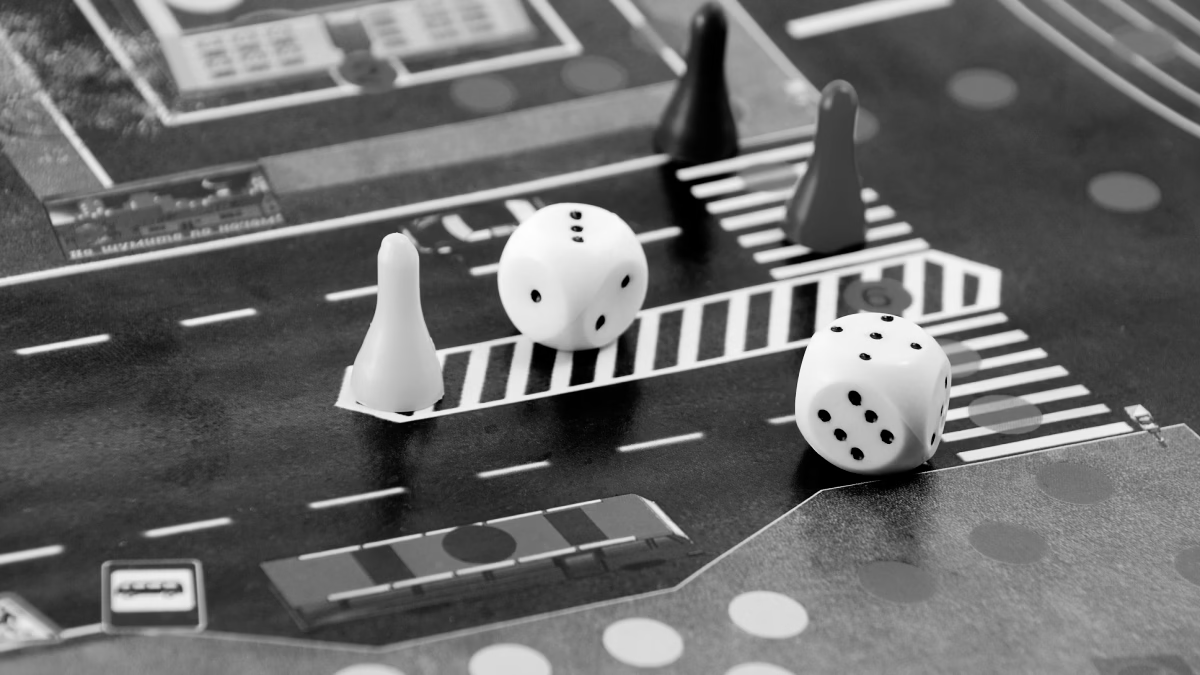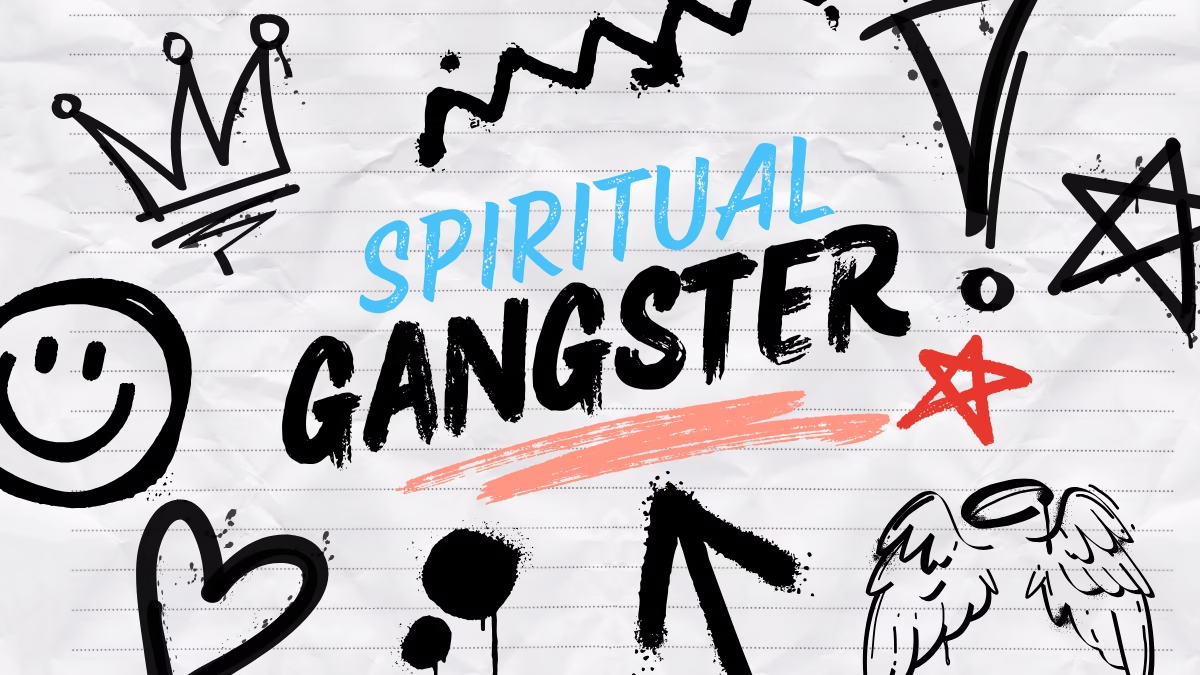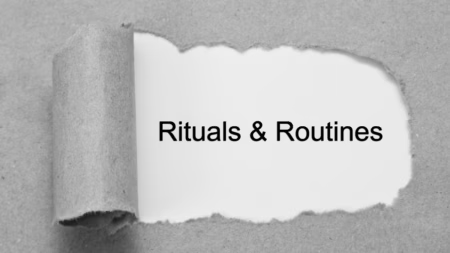
Classy Problems is a daily post of thinking in motion by Dan T. Rogers. Each post stands alone as a thought-provoking piece, yet together, they create a puzzle of ideas. They invite you to see things from a different angle, rethink what you thought you knew, and explore what’s beyond your current understanding.
Classy isn’t just a read: it’s a practice. Read, listen, and join us for Classy Problems Live, a 15-minute, live virtual conversation held Monday through Thursday at 12:15p PT, where we gather to reflect on the Classy Problems post of the day. No need to prep. Just connect, explore, and reflect.

Routine Ritual
My days are mostly routine.
Conditioning.
Default.
Instinct.
Mostly.
Routines get me through the basics.
Wake up.
Brush my teeth.
Check my phone.
Default settings of being human.
Pretty awesome.
Mostly.
Except when routine lets me
stop paying attention.
Stop choosing.
Stop being present.
Ritual is different.
Ritual is intentional.
It’s me choosing
how I want to show up.
Routines keep me alive.
Rituals keep me aware.
My trouble comes when I confuse the two.
When I call my routines rituals.
Pretending default is choice.
The paradox is simple:
Routines get me through the day.
Rituals give me back my day.

The Intersection of Rules and Actions
Every game has rules.
Every life too.
Rules set the boundaries.
What counts.
What doesn’t.
What’s in.
What’s out.
Actions fill the space inside those rules.
Choices.
Effort.
Execution.
The score isn’t separate.
It isn’t magic.
It isn’t luck.
When my actions are consistent
the score tells me.
When they connect,
the score takes care of itself.
The intersection of rules and actions is where the game is played.
The score is the reflection of how well
my actions align with my rules.

Learning Is Something I Haven’t Met Yet
Learning is a relationship with the unknown.
Something I haven’t met yet.
Something unfamiliar.
A belief is different.
A belief is like an old friend.
Known. Trusted.
Sometimes too trusted.
Familiar enough I forget to question it.
An assumption isn’t either.
It has a part of both.
Unknown,
and
I treat it like an old friend.
I act as if I already know it.
That’s the trouble.
An assumption is a stranger disguised as a friend.
One I mistake for knowing,
when I haven’t even met them.
Learning only happens when I recognize the difference.
Beliefs are old friends.
Assumptions pretend to be.
Learning is the courage to make a new one.
Learning starts when assumptions are met.
Learning takes place when assumptions are questioned.

My Actions Don’t Care What I Think
I’ve learned I can’t think my way into
a better way of acting.
That’s the loop of overinflating my thoughts.
Details that keep me stuck.
My experience has shown
I can act my way into
a better way of thinking.
Where my actions lead,
my feelings follow.
It’s not a matter of choice.
It’s a matter of awareness.
My actions are the best filter of
what I really believe to be true.
Not what my thoughts say I believe.
Not what my feelings want to believe.
What I really believe.
Acting changes thinking.
Thinking shapes feeling.
Feeling reinforces acting.
The order matters.
If I wait to feel different before I act,
I don’t move.
When I act,
everything else catches up.
The paradox is this:
My best thinking doesn’t come before acting.
My best acting comes in spite of it.

Personal Accounting
I am responsible for my actions.
Not the outcomes.
Outcomes are above my pay grade.
I can control the effort.
Not the result.
I can choose the behavior.
Not the response.
I can direct my intention.
Not the impact.
That doesn’t free me from responsibility.
It clarifies it.
My actions are mine.
They are the evidence of what I believe.
They are the accountability I can’t outsource.
The paradox is this:
Others may try to hold me accountable for outcomes.
My actions hold me accountable to myself.

Gift Giving and Receiving
Most of what I’ve called a gift
wasn’t a gift.
It was a trade.
Unspoken bartering.
A favor in disguise.
Or a play to my own ego.
I’ll give you my flexibility
if you give me your appreciation.
I’ll carry the weight
if you carry the guilt.
I’ll listen
if you tell the story the way I want it told.
None of it spoken.
All of it assumed.
When the return doesn’t come
when you don’t give back the thing
you didn’t even know I offered
I call it unfair.
Or betrayal.
That’s the thing about unspoken bartering.
It only makes sense to the one keeping score.
A true gift has no score.
No strings.
No silent contract.
The responsibility of giving is this:
I have to be sure I can let go.
Am I ready for you to break it, sell it, give it away?
If not, it isn’t a gift.
It’s a favor.
The responsibility of receiving is this:
accept without attaching strings of my own.
I don’t owe you.
You don’t owe it to me.
It doesn’t mean you like me.
Otherwise, I’m not receiving a gift.
I’m receiving an assumption of debt.
The paradox is simple:
The moment I attach strings,
it’s no longer a gift.
Gifts get decorated with ribbons
and with no strings attached.

Consensus and Justice
Consensus is how we find clarity.
Consensus doesn’t mean we all agree.
It means we’ve all been heard.
Consensus doesn’t guarantee the best answer.
It gives us the clearest path forward.
Shared direction.
Shared commitment.
Justice is different.
Justice is judgment.
Not shared agreement,
measured consequence.
Justice doesn’t require my clarity.
It requires a verdict.
A decision made.
A line drawn.
Consensus seeks alignment.
Justice seeks resolution.
The trouble comes when I confuse the two.
When I expect justice to feel like consensus.
When I expect consensus to carry the weight of justice.
The paradox is this:
Consensus is the light we shine together.
Justice is the shadow we cast.
Want more from us? OPT IN to our daily email and join our Classy Problems community. It’s where we abandon certainty in the pursuit of clarity, one interaction at a time.

Classy Problems is a daily post of thinking in motion by Dan T. Rogers. Each post stands alone as a thought-provoking piece, yet together, they create a puzzle of ideas. They invite you to see things from a different angle, rethink what you thought you knew, and explore what’s beyond your current understanding.
What is a classy problem? A classy problem is when we’ve been afforded the opportunity to figure out what to do. Time to figure it out. Time to practice. Time to discern. When faced with the time to figure out a classy problem, it is more effective to focus on what NOT to do than trying to figure out what to do. In a word: restraint. JOIN US in exploring the distinction between what to do and what not to do in the pursuit of clarity.


SPIRITUAL GANGSTER: at The Sober Curator is a haven for those embracing sobriety with a healthy dose of spiritual sass. This space invites you to dive into meditation, astrology, intentional living, philosophy, and personal reflection—all while keeping your feet (and your sobriety) firmly on the ground. Whether you’re exploring new spiritual practices or deepening an existing one, Spiritual Gangster offers inspiration, insight, and a community that blends mindful living with alcohol-free fun.
A Disco Ball is Hundreds of Pieces of Broken Glass, Put Together to Make a Magical Ball of Light. You are NOT Broken, Friend. You are a DISCO BALL!

Resources Are Available
If you or someone you know is experiencing difficulties surrounding alcoholism, addiction, or mental illness, please reach out and ask for help. People everywhere can and want to help; you just have to know where to look. And continue to look until you find what works for you. Click here for a list of regional and national resources.






